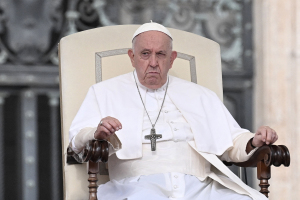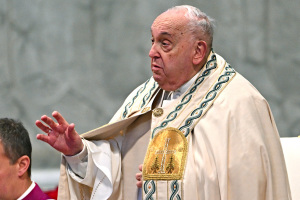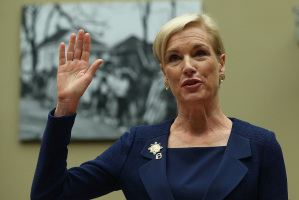Atheists' Lawsuit to Remove Ground Zero Cross Backfires
American Atheists may not have anticipated it, but a suit they recently filed in New York to remove a cross in a 9/11 museum has turned even non-conservatives and skeptics against the group’s litigious zeal.
The Washington Post’s On Faith section says few panelists defended the suit filed about two weeks ago to stop the display of a metal cross at the National September 11 Memorial and Museum.
“Even our own atheist contributors seemed to feel that the lawsuit was ‘frivolous’ and distracted from real church and state battles,” it notes.
Jon Stewart, the host of the late-night satirical television program “The Daily Show” and who is anything but conservative, can be cited as an example. He called the 17-foot-tall cross, which a construction worker found in the vicinity of 6 World Trade Center after the Sept. 11 attacks, “an artifact.”
“That cross… was found at Ground Zero,” Stewart said during his show Thursday night. “It has come to mean something to people who view it as a symbol of comfort.”
“If it really bothers you,” Stewart proposed, “why not just think of it as a metal T-shape thingy, in a purely an architectural term. Don’t think of it as an ode to Jesus, the Christian savior, think of it as homage to Jesus, the Canaanite with the relatively unsuccessful carpentry business.”
Stewart then had a correspondent quote from a statement made by American Atheists President Dave Silverman, who said the cross was a reminder to Christians “that their God, who couldn’t be bothered to stop the Muslim terrorists or prevent 3,000 people from being killed in his name, cared only enough to bestow upon us some rubble that resembles a cross.”
After a brief pause, the host remarked, “Well, I can see why he is the president.”
“As president of the American Atheists organization, I promise to make sure that everyone even those who are indifferent to our cause… will hate us.”
Susan Jacoby, an atheist contributor of The Washington Post, isn’t happy either. She describes the New Jersey-based American Atheists as having “an unerring nose for the scent of publicity,” their suit “nonsense,” and their leader, “obtuse.”
“This suit not only misconstrues the First Amendment but detracts from the seriousness of the many genuine violations of the separation of church and state that have become embedded in our society,” Jacoby said in a piece she contributed last week.
It would be a violation of the establishment clause if the battered cross-shaped object were displayed at the entrance as the museum’s official symbol, Jacoby explained. “And I’d be the first to go to court to get it removed. But there is no evidence that the museum intends this piece, when the building opens, to be anything but one exhibit in a large collection that will include many other objects belonging to the history of that day and its aftermath.”
Jacoby also said Rob Boston, senior policy analyst for Americans United for Separation of Church and State, told her that if the cross was being displayed in a museum as an artifact of the event with accompanying information about what it was and where it came from, it was “highly unlikely that a court would strike it down.”
The American Atheists suit seeks to have the cross removed completely or to provide equal representation for all religions. The group’s president speculates that atheists might want to install a symbol of an atom “because we’re all made of atoms.” Jacoby said she wondered if he is being deliberately “obtuse.”
Jacoby warned Silverman, saying, “Cry ‘wolf’ often enough, and no one pays attention when our once-cherished separation of church and state is really being devoured.”
There was a similar admonition in Stewart’s satire as he said, “Just because there’s a lawsuit doesn’t mean that it will be successful.” Atheist organizations have in the past challenged the Pledge of Allegiance, the National Motto, and the National Day of Prayer, but all without success.
American Atheists has at least one supporter, Tom Flynn, executive director of the Council for Secular Humanism and editor of Free Inquiry magazine. He thinks that not only the actuality, but even the appearance of endorsing one religion above others matters. But he is an exception, The Washington Post noted.





























